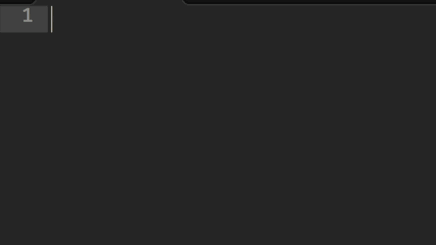{
# specify rate in requests/second (because comments are helpful!)
rate: 1000
// prefer c-style comments?
/* feeling old fashioned? */
# did you notice that rate doesn't need quotes?
hey: look ma, no quotes for strings either!
# best of all
notice: []
anything: ?
# yes, commas are optional!
}
The Go implementation of Hjson is based on hjson-js. For other platforms see hjson.github.io.
More documentation can be found at https://pkg.go.dev/github.com/hjson/hjson-go/v4
Make sure you have a working Go environment. See the install instructions.
- In order to use Hjson from your own Go source code, just add an import line like the one here below. Before building your project, run
go mod tidyin order to download the Hjson source files. The suffix/v4is required in the import path, unless you specifically want to use an older major version.
import "github.com/hjson/hjson-go/v4"- If you instead want to use the hjson-cli command line tool, run the command here below in your terminal. The executable will be installed into your
go/binfolder, make sure that folder is included in yourPATHenvironment variable.
$ go install github.com/hjson/hjson-go/hjson-cli@latestusage: hjson-cli [OPTIONS] [INPUT]
hjson can be used to convert JSON from/to Hjson.
hjson will read the given JSON/Hjson input file or read from stdin.
Options:
-bracesSameLine
Print braces on the same line.
-c Output as JSON.
-h Show this screen.
-indentBy string
The indent string. (default " ")
-j Output as formatted JSON.
-omitRootBraces
Omit braces at the root.
-quoteAlways
Always quote string values.
-v
Show version.
Sample:
- run
hjson-cli test.json > test.hjsonto convert to Hjson - run
hjson-cli -j test.hjson > test.jsonto convert to JSON
package main
import (
"github.com/hjson/hjson-go/v4"
"fmt"
)
func main() {
// Now let's look at decoding Hjson data into Go
// values.
sampleText := []byte(`
{
# specify rate in requests/second
rate: 1000
array:
[
foo
bar
]
}`)
// We need to provide a variable where Hjson
// can put the decoded data.
var dat map[string]interface{}
// Decode with default options and check for errors.
if err := hjson.Unmarshal(sampleText, &dat); err != nil {
panic(err)
}
// short for:
// options := hjson.DefaultDecoderOptions()
// err := hjson.UnmarshalWithOptions(sampleText, &dat, options)
fmt.Println(dat)
// In order to use the values in the decoded map,
// we'll need to cast them to their appropriate type.
rate := dat["rate"].(float64)
fmt.Println(rate)
array := dat["array"].([]interface{})
str1 := array[0].(string)
fmt.Println(str1)
// To encode to Hjson with default options:
sampleMap := map[string]int{"apple": 5, "lettuce": 7}
hjson, _ := hjson.Marshal(sampleMap)
// short for:
// options := hjson.DefaultOptions()
// hjson, _ := hjson.MarshalWithOptions(sampleMap, options)
fmt.Println(string(hjson))
}If you prefer, you can also unmarshal to Go structs (including structs implementing the json.Unmarshaler interface or the encoding.TextUnmarshaler interface). The Go JSON package is used for this, so the same rules apply. Specifically for the "json" key in struct field tags. For more details about this type of unmarshalling, see the documentation for json.Unmarshal().
package main
import (
"github.com/hjson/hjson-go/v4"
"fmt"
)
type Sample struct {
Rate int
Array []string
}
type SampleAlias struct {
Rett int `json:"rate"`
Ashtray []string `json:"array"`
}
func main() {
sampleText := []byte(`
{
# specify rate in requests/second
rate: 1000
array:
[
foo
bar
]
}`)
// unmarshal
var sample Sample
hjson.Unmarshal(sampleText, &sample)
fmt.Println(sample.Rate)
fmt.Println(sample.Array)
// unmarshal using json tags on struct fields
var sampleAlias SampleAlias
hjson.Unmarshal(sampleText, &sampleAlias)
fmt.Println(sampleAlias.Rett)
fmt.Println(sampleAlias.Ashtray)
}By using key comment in struct field tags you can specify comments to be written on one or more lines preceding the struct field in the Hjson output.
package main
import (
"github.com/hjson/hjson-go/v4"
"fmt"
)
type foo struct {
A string `json:"x" comment:"First comment"`
B int32 `comment:"Second comment\nLook ma, new lines"`
C string
D int32
}
func main() {
a := foo{A: "hi!", B: 3, C: "some text", D: 5}
buf, err := hjson.Marshal(a)
if err != nil {
fmt.Error(err)
}
fmt.Println(string(buf))
}Output:
{
# First comment
x: hi!
# Second comment
# Look ma, new lines
B: 3
C: some text
D: 5
}



